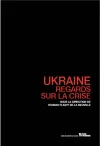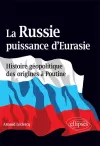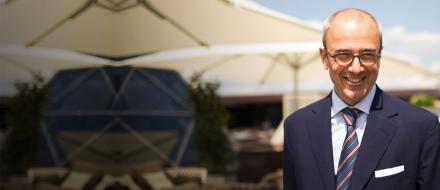Swiss banks set to drive sustainable innovation in Gulf investments
The nation's financial and ban king system offers massive potential to drive innovation
The Swiss financial and banking system offers massive potential to drive disruptive innovation and sustainable businesses in the region as the UAE and the Gulf pivot to clean energy, according to a panel of Swiss ministers, bankers and financial experts.
"We want to reaffirm Switzerland’s leading position in sustainable finance, with a new climate label for financial products, along with harnessing the opportunities of digitalisation in the financial sector," Swiss Finance Minister Ueli Maurer said at the recently-held Swiss Finance Day at the Swiss Pavilion at Expo 2020 Dubai.
He was speaking ahead of a panel discussion on the Swiss Financial Centre's leading contribution to innovation and sustainability, with its advanced infrastructure and regulation covering fintech, blockchain and green investments now helping thousands of companies globally.
International financial service hub
A global leader in international financial services, Switzerland is home to banks, asset managers, insurances, fintech and blockchain companies and consulting firms offering innovative solutions to clients around the world. Swiss Finance Day brought together high-level speakers from the Swiss Financial Center and Swiss bankers to showcase Switzerland's position as one of the world's top financial centres.
"Digitalisation creates new players and new opportunities for innovative services. From the client's point of view, financial services become more efficient and cost-effective. But at the same time risks in data and privacy protection are increasing, and we have to prepare for this," Maurer said.
Explaining the climate label initiative, Daniela Stoffel, State Secretary for International Finance at the Federal Department of Finance in Switzerland, told the forum: "This is perhaps the first instance of a country developing a climate score by evaluating significant climate-related financial risks and their impact on business models. Whoever complies with those parameters will get a label of Excellence and several other incentives."
The decision, currently applicable to large banks and insurance companies in Switzerland, will help create a standardised market for sustainable finance, align banks and businesses with UN Sustainable Development Goals (SDGs) on climate change and attract a new client base from regions such as the Gulf and the Middle East, Stoffel said.
Sustainable solutions for wealth management
Those goals resonate well with legacy Swiss banks and wealth managers such as UBS, which have made sustainable investments their preferred solution for private clients seeking to invest globally.
"Our strategies aim to achieve competitive investment returns while explicitly focusing on sustainability objectives," Ali Janoudi, Head of Wealth Management MEA and Group Head MENA at UBS, told Reach by Gulf News.
"Considering global net zero ambitions is an integral part of our assessment, as net zero provides both opportunities and risks for investors. By advising them appropriately, we can have a real impact on the transition to net zero, in addition to delivering on their risk-return aspirations," Janoudi, one of the participants at the forum, explained.
In 2020, UBS recorded a 30 per cent increase in sustainable investing, and according to Janoudi, the Middle East and the UAE offer great potential in the diversification away from fossil fuels into clean energy.
"This trend might accelerate further because of growing ambitions to reduce dependencies on fossil fuels, and because of greater room for manoeuvre in fiscal terms for oil exporting countries, due to the windfall from higher energy prices. Our offering includes specific instruments giving access to investments in clean energy as well as the other UN Sustainable Development Goals," he said.
Growing interest in green finance from UAE
The UAE is Switzerland's most important trading partner in the Middle East, with an annual trading volume of nearly Dh77 billion (20 billion Swiss francs). With improved market access for Swiss companies in the field of finance, that number could grow swiftly as innovative investments expand.
"In an oil-producing country like the UAE, the question could be are they really interested in sustainability? And the answer is definitely yes. You can not only demonstrate that with sustainable cities like Masdar, but also with new projects and technologies the country is pursuing," said Arnaud Leclercq, Group Managing Director, Lombard Odier.
According to the Geneva-based Swiss banking group, a recent survey in the UAE revealed that it was not only the new generation that was keen on sustainable investments, but also the older generation that wanted access to green financial instruments.
"That's probably because the idea of sustainability is also embedded in Islamic finance, which is very important. Sustainability and such values together create a powerful driving force for green investments," Leclercq told the forum.
Ukraine crisis could be accelerator for sustainability
Commenting on the sustainable investment landscape in the aftermath of the Ukraine crisis, Leclercq said: "This has created a new supply shock and we have seen the prices of commodities soaring high. It is possible that inflation will grow at higher levels than we all expect, and could actually be an accelerator for sustainable investments."
Some such investments are directly being driven by banks in Switzerland.
Citing a real-world case study, Blaise Goetschin, CEO of Banque Cantonale de Genève, told the forum how the centuries old government-owned bank was financing a project to convert water from Lake Geneva into renewable energy to heat and cool its own headquarters and other buildings in the Swiss city using hydrothermal technology, which also ensured that the lake was reclassified as a tropical one since its water temperature remained constant around 3.5 degrees Celsius.
"Banque Cantonale has successfully changed the heating system for this project into a hydrothermal one, based on renewable energy. This is an example that shows that philosophical discussion won't help the client - what is going to help the climate is pragmatic technology and action," Goetschin said.
Portfolio temperature alignment
Citing a similar approach to sustainable finance, Leclercq of Lombard Odier said that the bank has seen more than 40 global crises since its inception in 1796, but has always tried to lead by example in innovation.
"What we have done at Lombard Odier is to have a partnership with the University of Oxford to build what we call a portfolio temperature alignment. It means that our clients can determine whether out of the positions in their portfolio, if a certain percentage is actually in line with the Paris Agreement. For our clients, this means not just investing in some green bonds but also being able to assess in real time the impact of their portfolio on the environment," Leclercq said.
To achieve this, he said, the bank was working with climate scientists from Oxford and artificial intelligence experts along with building some physical risk tools and verification in order for the investment portfolios to be climate-compliant.
Reducing exposure to carbon-related assets
According to Ali Janoud of UBS, the bank has supported over a hundred issuances of green, social, sustainability or sustainability-linked bond deal transactions. "Our private and institutional clients in the Middle East who seek to manage their wealth in a sustainable way have access to these investments," he said.
In addition, since UBS is a founding member of the Net Zero Banking Alliance, the bank was committed to reducing its exposure to carbon-related assets and its own carbon footprint.
"Our climate strategy underlines our commitment to the United Nations' Sustainable Development Goals on affordable and clean energy and on climate action. We're taking responsibility as a company. For instance, we are not financing any new coal-fired power plant projects, new offshore oil projects in the Arctic, greenfield thermal coal mines or greenfield oil sands projects. Also, we have a net zero target for greenhouse gas emissions for our own operations by 2025," he said.





